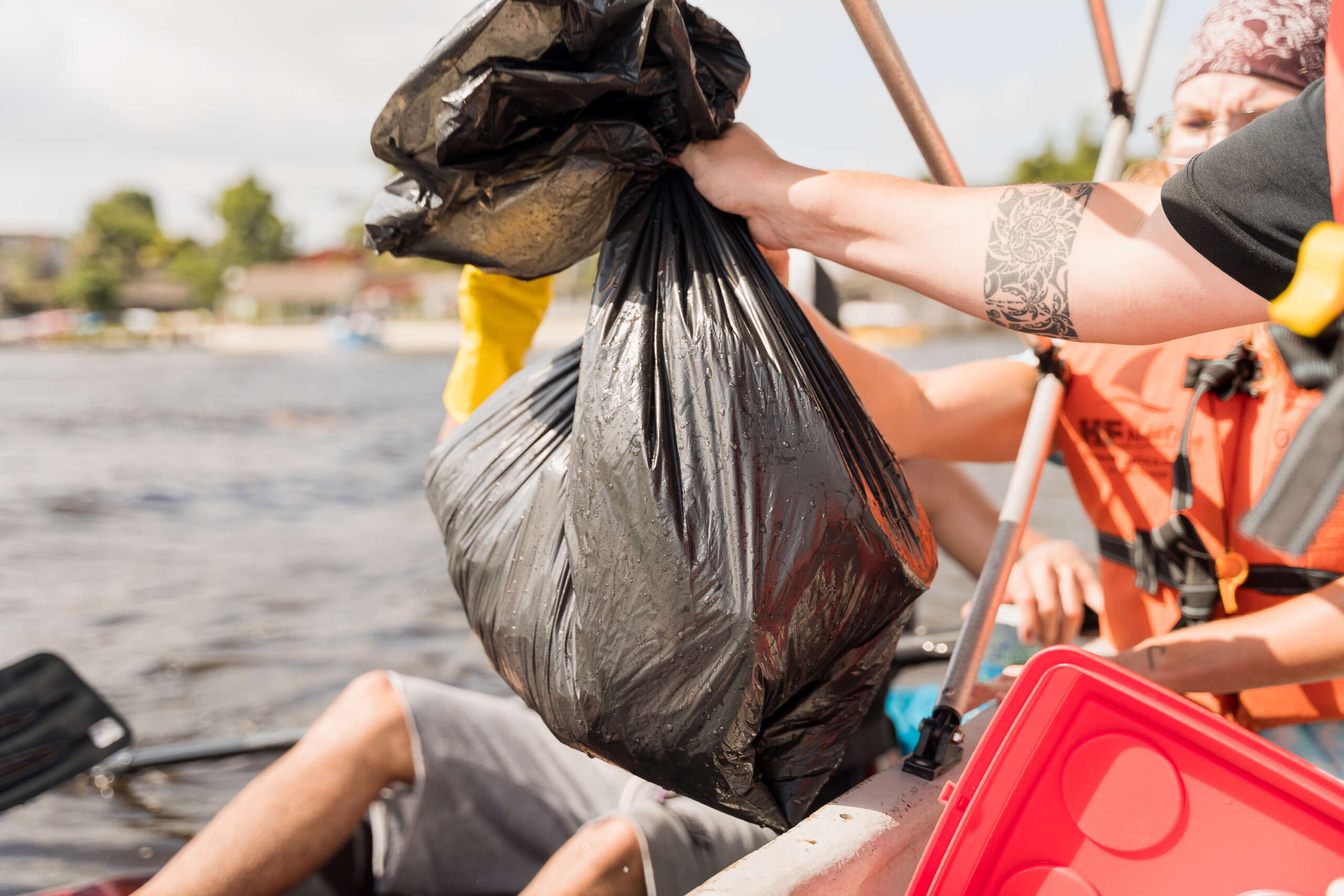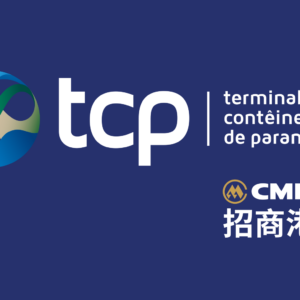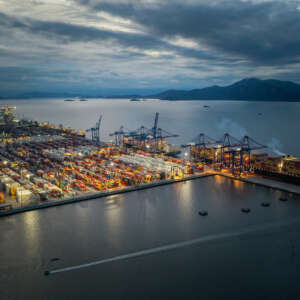TCP (Terminal de Contêineres de Paranaguá) is located in the state of Paraná on the southeastern coast of Brazil. Its container throughput consistently ranks among the top three public terminal operators in Brazil. In April 2018, CMPort officially acquired a stake in TCP and has since made positive progress in promoting community welfare, adhering to sustainable development, and integrating corporate governance.
Business for Good: Fostering Community Welfare and foundational Governance
In recent years, TCP has consistently adhered to the principles of sustainable development and placed great emphasis on ESG (Environmental, Social, and Governance) initiatives. The TCP project team has proactively established mutually supportive and trusting relationships with the local community, leveraging its core business strengths to conduct a series of community activities. By integrating local social development into its business operations, TCP continues to expand its contributions in areas such as infrastructure construction, community care, education, and medical assistance, thereby giving back to the local area.
With the strong support of the China Merchants Foundation, TCP reinforced its commitment to the Brazilian Institute of the Environment and Renewable Natural Resources (IBAMA), the National Indigenous People Foundation (FUNAI), and local organizations. During 2021-2022, TCP successfully executed the Term Commitment with 3 Indigenous communities (Cotinga, Sambaqui e Shangrilá), completed the construction of village houses and water storage facilities on the Indigenous Island of Cotinga, and delivered a middle school building on the Fishermen’s Island of Amparo (Ilha do Amparo). Building on the existing commitments, TCP will subsequently construct community cultural centers and supporting sports facilities on the two islands to provide a better living environment for local residents and promote the protection of indigenous culture.
Green Foundation: Creating a Sustainable Development Ecosystem for the Enterprise and Its Project Site
As a public terminal operator in Brazil, TCP is committed to sustainable development and fulfilling its concession agreement. The company continuously strengthens its infrastructure construction and vigorously introduces modern technological applications to provide high-quality and efficient integrated logistics services to its customers. In 2023 alone, TCP has completed investments in upgrading and acquiring various facilities and equipment, including the construction of a new substation, expansion of the refrigerated container yard, procurement of new yard machinery, automation upgrades at the gate to achieve unmanned operations, construction of a new operations control center, and improvements to the waiting environment for frontline staff.
In terms of energy conservation and emission reduction, TCP has taken a range of investments and technical approaches to lower carbon emissions. These efforts include upgrading wastewater purification systems, constructing new solid waste disposal facilities, purchasing green electricity certified by I-REC (International REC Standard), converting machinery from fossil fuel power to electricity, and introducing pure electric buses for on-site transportation.
TCP is located in a protected bay, which is an extremely important ecosystem conservation area on a global scale. In terms of protecting ecological diversity, TCP has implemented 19 specific environmental protection programs aimed at conserving flora and fauna, including dolphin and turtle monitoring programs as well as aquatic life and biomonitoring programs following its Environmental Operation License issued by the Environmental Federal Agency (IBAMA). The company actively participates in and sponsors public welfare initiatives to protect marine life and climate, promoted by local government agencies. These initiatives include mangrove conservation, marine debris cleanup and recycling, seawater and plant specimen collection, and tree planting events. TCP has been recognized with multiple awards from local government entities for its contributions, such as the Ecobrasil Charity Project Award from the Federal Government, the Paraná State Government’s Award for Climate and Environmental Commitment, and the ESG Action Innovation Award at the Industry Social Service (SESI) conference.
“Culture” for “Strength”: Integrating Corporate Culture and Management into Governance
TCP has consistently aligned its business achievements with the continuous development and employment of the local community. In terms of human resource management, adhering to the principle of people-centricity and enhancing the professional level of local employees, TCP has continuously refined its compensation system, optimized recruitment and training processes, and introduced incentive mechanisms. The company’s corporate culture has been established through employee voting. With the increase in terminal facilities and business volume, the number of local employees has grown by 18% since 2018, fostering employment development in the local community. Meanwhile, the employee turnover rate has gradually decreased from 29.5% in 2018 to a healthy standard of 8.4% by the end of 2023. Over the past six years, 13 local employees at TCP have participated in the C BLUE Training Program hosted by CMPort, which has enhanced their sense of belonging and team cohesion and elevated the professional and technical standards of the company’s corporate governance.
In terms of institutional management, TCP is committed to advancing management integration through cultural integration. The company strictly adheres to local laws and regulations and the terms of its concession contract, subsequently establishing a comprehensive set of governance frameworks and compliance protocols. TCP has created a safety committee and safe operation procedures, ensuring that safety is implemented in daily operations. Continuous improvements to the safety environment have been made on the basis of existing facilities and equipment, leading to a significant reduction in safety incidents and damage rates. The marked improvement in the safety environment has garnered the endorsement and support of 1,400 local employees.
In risk management, TCP regularly conducts ESG risk identification and assessment. The company proactively identifies issues to develop response and management measures, as well as contingency plans. By aligning with local laws and regulations, industry standard requirements, and stakeholder demands, TCP refines its approach to ESG implementation. This leads to a self-examining and self-correcting risk identification process, creating an ESG management system that meets local demands. By improving the risk management system, TCP further enhances its core competitiveness and promotes sustainable corporate development.
TCP continuously improves its service capabilities in its location, practicing green, low-carbon, and people-oriented social responsibilities in Paranaguá, creating a shining corporate image. Throughout its corporate development journey, the TCP team has remained true to its original mission, actively engaging with and giving back to society. They persistently seek synergy with the local community, exploring sustainable development models that align with both contemporary trends and local context. Together with partners, TCP is committed to building a harmonious society and creating a thriving ecosystem.



